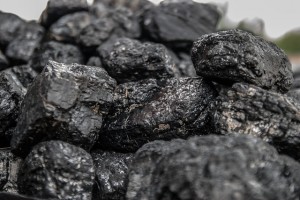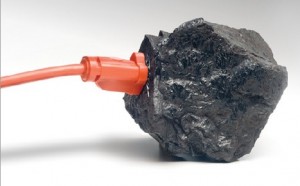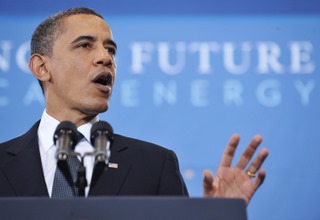6 item(s) were returned.
Editor
Bloomberg's First Word Energy
Coal can’t get much love. Cheap natural gas and a bevy of EPA regulations are conspiring to force old coal plants to close and pushing U.S. production down to less than one billion short tons, near a two-decade low. While low-cost production in Wyoming and Illinois has been able to hold steady, the legacy mines of Appalachia face devastating losses in production and jobs. Meanwhile, projects that were supposed to demonstrate a future for coal in a carbon-constrained world are struggling or dead. The Obama administration pulled the plug on the FutureGen clean coal project this month. Another similar project… [more]
View InsightThe U.S. Environmental Protection Agency (EPA) released draft rules on September 20th, to limit carbon emissions from new coal power plants. The proposed rules are part of President Obama’s broader Climate Action Plan aimed at combating climate change and improving public health, according to the EPA. Under the rules, new coal-fired power plants would be limited to 1,100 pounds of CO2 per megawatt-hour, or could opt to meet stricter average emissions limits that grant additional operational flexibility. The rules also would require new plants to implement partial carbon capture and storage (CCS) technology. Critics of the proposed rules argue that… [more]
View InsightAccording to The President’s energy blueprint, the Obama Administration is calling on Congress to establish a $2 billion Energy Security Trust to invest in breakthrough research into technologies, such as advanced electric vehicles, homegrown biofuels, fuel cells, and domestically produced natural gas. The funds would come from oil and gas royalty revenues generated from development in Federal waters off the Outer Continental Shelf (OCS). Other highlights of the blueprint include: Making the renewable energy Production Tax Credit permanent and refundable; A new $25 million prize for the first, natural gas combined cycle power plant to integrate carbon capture and storage;… [more]
View InsightBloomberg Government has published The Twilight of Coal Power?, an assessment of how EPA’s new greenhouse gas rules might affect coal-fired power plants. The report concludes that although coal will remain in the energy mix for decades due to existing plants, the EPA’s new rule will effectively ban new coal plants. The new rules require that fossil plants not exceed 1,000 lbs. of CO2/MWh. Scott Segal, executive director of the Electric Reliability Coordinating Council, which represents utility interests, warns that EPA’s rule will disrupt utility hedging by eliminating coal from the fuel mix and “depriving the market of its flexibility.”… [more]
View InsightOn March 27, 2012 the Environmental Protection Agency, under the authority of the Clean Air Act, released proposed greenhouse gas standards for newly constructed power plants. The rules would require that “new fossil‐fuel‐fired power plants meet an output‐based standard of 1,000 pounds of CO2 per megawatt‐hour (lb CO2/MWh gross).” Combined-cycle natural gas plants should be able to meet this requirement, and coal- or petroleum coke-fired plants would be able to with emerging technologies such as carbon capture and storage. The proposed rules elicited varied response from advocacy groups, many of which were highlighted in this Los Angeles Times article. Environmental… [more]
View InsightIn a study of U.S. carbon capture and storage (CCS) potential published in the Proceedings of the National Academies of Science, researchers at the Massachusetts Institute of Technology found “that the United States can store enough CO2 to stabilize emissions at their current rate for over a hundred years. This result suggests that with a favorable political and economic framework, carbon capture and storage can be a viable climate change mitigation option in this country for the next century.” The video below explains their findings:
View Insight

